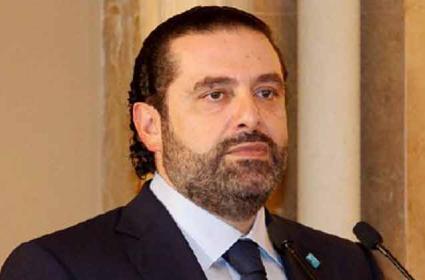In Lebanon, Saad Hariri Exit Raises Spectre Of Fresh War

Beirut: Saad Hariri's resignation from Lebanon's premiership has raised fears that regional tensions were about to escalate and that the small country would once again pay a heavy price.
Analysts said the Saudi-backed Sunni politician's move yesterday to step down from the helm less than a year after forming a government was more than just the latest hiccup in Lebanon's notoriously dysfunctional politics.
"It's a dangerous decision whose consequences will be heavier than what Lebanon can bear," Hilal Khashan, a professor of political science at the American University of Beirut, said.
Hariri announced his resignation in a broadcast from Saudi Arabia, accusing Iran and its Lebanese ally Hezbollah of taking over his country and destabilising the entire region.
Hezbollah is part of the government, but the clout of a group whose military arsenal outstrips that of Lebanon's own armed forces is far greater than its share of cabinet posts.
For years now, Lebanon has been deeply divided between a camp dominated by the Shiite Tehran-backed Hezbollah and a Saudi-supported movement led by Hariri.
"Hariri has started a cold war that could escalate into a civil war, bearing in mind that Hezbollah is unmatched in Lebanon on the military level," Khashan said.
The rift in Lebanon's political class led to the assassination in 2005 of Hariri's father Rafik, an immensely influential tycoon who made his fortune in Saudi Arabia.
Investigations pointed to the responsibility of Syrian President Bashar al-Assad's regime and its Lebanese ally Hezbollah.
Other political assassinations in the anti-Hezbollah camp ensued, then a month-long war between the powerful militia and neighbouring Israel, as well as violent internal clashes that harked back to the dark days of the 1975-1990 civil war.
Twelve years on, Lebanese politics remain just as toxically sectarian and the threat of another flare-up very real. Hariri even said yesterday he feared going the way of his father.
His resignation came in a context of high tension between Saudi Arabia, once the region's powerhouse, and Iran, which has played an increasingly prominent political and military role in the region recently.
On Friday, Hariri met Iran's most seasoned diplomat, Ali Akbar Velayati, before flying to Saudi Arabia and resigning from there via a Saudi-funded television network.
"The timing and venue of the resignation are surprising... but not the resignation itself," said Fadia Kiwane, political science professor at Beirut's Saint Joseph University.
"The situation is developing rapidly and we're at a turning point... there could be a deadly clash between Saudi Arabia and Iran," she said. "In that event, the two main camps in Lebanon will clash too."
Over the past few weeks, a Saudi minister, Thamer al- Sabhan, has unleashed virulent attacks against Hezbollah on social media.
"The terrorist party should be punished... and confronted by force," he wrote last month. Other than just an internal conflict, analysts also do not rule out an external attack on Hezbollah, be it by Saudi Arabia directly or by the Shiite militia's arch-foe Israel. (AFP)



















